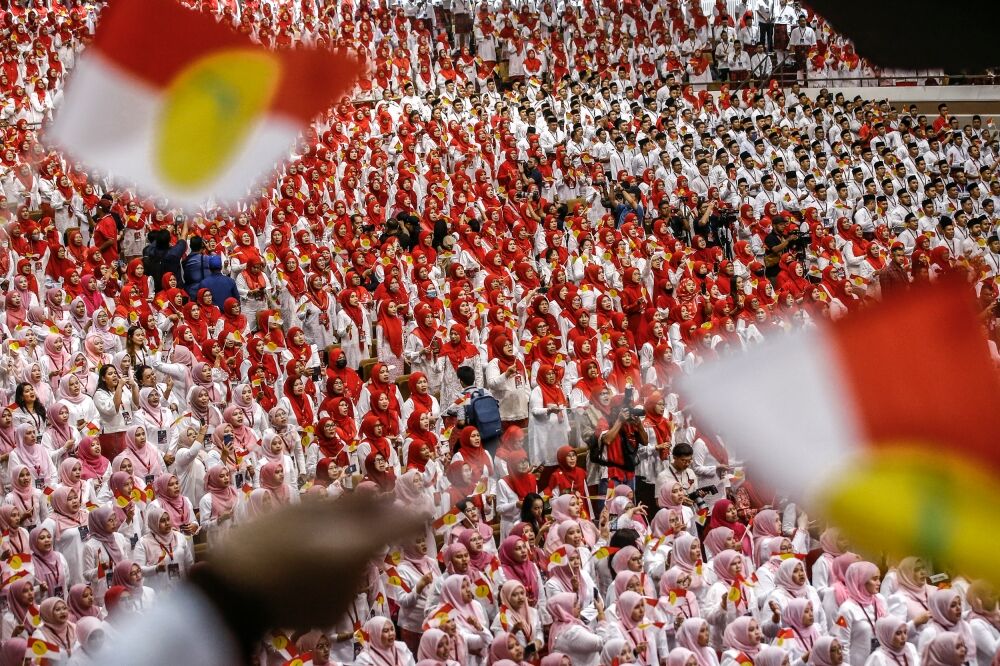Umno members struggle with Anwar alliance ahead of crucial state elections

The 2023 Umno general assembly, taking place today, is anticipated to reveal the extent of internal friction within the party, as some grassroots members struggle to accept their new partnership with Prime Minister Anwar Ibrahim’s national unity government. Analysts suggest that despite being part of Anwar’s administration for over six months, Umno has not fully convinced its grassroots members about the collaboration with former rivals in Pakatan Harapan, particularly DAP, after the 15th general election. The assembly is expected to address this issue and reassure members and the Malay-Muslim community of Umno’s commitment to protecting their interests, especially with six crucial state elections approaching in August.
Umno secretary-general Asyraf Wajdi Dusuki confirmed that Anwar and other PH leaders were invited to the assembly. However, political science professor Ahmad Fauzi Abdul Hamid from Universiti Sains Malaysia said the allies should expect a mixed reception from some Umno delegates. He explained that while some may welcome Anwar out of respect for their president, Ahmad Zahid Hamidi, others may still be hesitant to accept DAP as a crucial partner in Anwar’s unity government.
“The idea hasn’t sunk in with the grassroots, most of whom still harbour misconceptions of DAP being an anti-Malay and socialist party. To the party grassroots, DAP is also a purveyor of liberal Islam — a notion abhorrent to conservative Malay-Muslims in general,” Ahmad Fauzi added.
Sunway University political analyst Wong Chin Huat echoed these sentiments, stating that Umno grassroots’ lack of enthusiasm for Anwar and PH was inevitable after years of vilifying the former rivals. He said that some members would struggle to accept the formerly bitter rivals as allies, and the leadership has not been successful in explaining this change to the rank and file.
Wong suggested that Malaysia’s future political dynamics would involve multiparty democracy and coalition governments, which would require political parties and their supporters to accept cooperation with rivals when necessary. For Umno, this would mean acknowledging that it is no longer the dominant force it once was and that its vilification of former rivals was not justified.
“With such maturity, Umno can then declare, we have lost but we are rebounding and we will be strong again. It is okay now that we play second fiddle to PH,” Wong added.
As the Anwar administration has made moderation a key aspect of its “Malaysia Madani” theme, Suhaimee Saahar @ Saabar, director of Universiti Teknologi Mara (UiTM) Shah Alam’s Centre of Media and Information Warfare Studies, said Umno would need to embrace the concept. However, he acknowledged that the acceptance of a new political ideology was complex and would be influenced by various factors, including personal beliefs, regional dynamics, and socio-political circumstances.
“The success or acceptance of ‘progressive nationalism’ among grassroots members would depend on how effectively it resonates with their concerns and aspirations, as well as the ability of political leaders to communicate and implement its principles,” Suhaimee told Malay Mail.
Anwar will attend the Umno general assembly for the first time since his expulsion from the party in 1998, alongside leaders from PH parties such as DAP. However, he will not address the delegates of his former party directly during the assembly.
The Umno assembly will set the tone for the fledgling political cooperation that will be tested in the upcoming state elections of Kedah, Kelantan, Negeri Sembilan, Penang, Selangor, and Terengganu. The former rivals will enter these elections as allies for the first time, taking on a Perikatan Nasional that analysts believe is still benefiting from the wave of support for religious conservatism that nearly allowed it to take federal power last year.
Latest Thailand News
Follow The Thaiger on Google News:


























